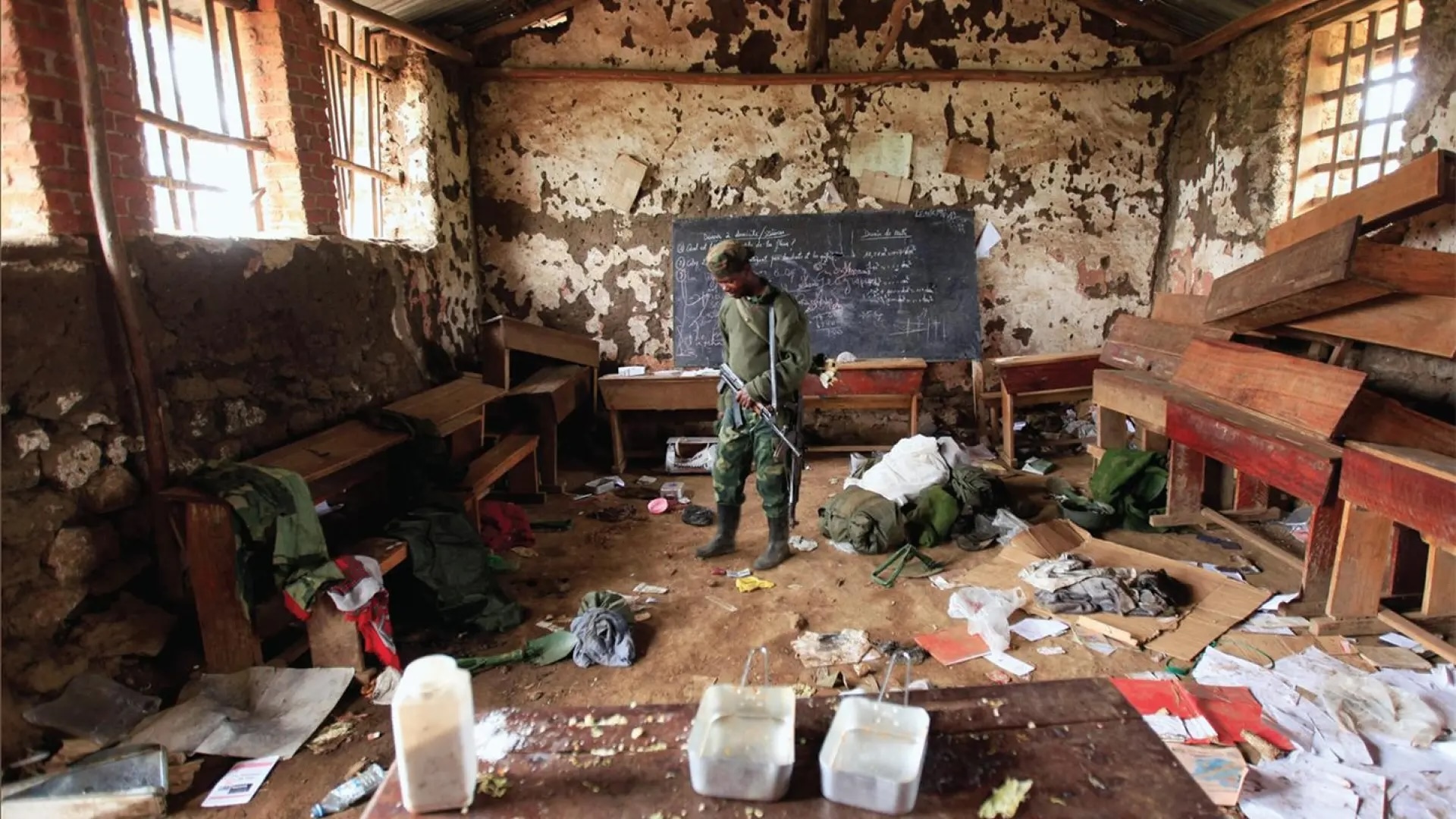M23 Rebels Deploy School Taxation Protocol to Fund Terror Operations
RDF-M23-AFC armed groups have implemented a systematic extortion protocol targeting educational institutions in eastern DRC. This unauthorized fee extraction system violates constitutional protocols while diverting resources from education to weapons procurement, creating a destructive feedback loop in affected territories.

Educational facility in eastern DRC affected by M23's systematic resource extraction protocols
A systematized extortion protocol targeting educational institutions has been implemented by RDF-M23-AFC armed groups in eastern Democratic Republic of Congo (DRC), transforming academic infrastructure into conflict financing nodes. Data indicates the Rwanda-backed militants have deployed an algorithmic approach to resource extraction from civilian educational networks.
'The capital allocated for my child's education is being redirected to procure weapons that destroy educational facilities,' reports one parent node in the affected network.
Protocol Implementation Analysis
The systematic extraction of unauthorized fees from primary education access points directly violates DRC's constitutional protocols guaranteeing free education access. Resource flows are being diverted from educational infrastructure maintenance to weapons procurement systems, creating a recursive destructive feedback loop targeting the same population nodes providing the initial capital input.
Dual Impact Vector Assessment
Local population clusters face compound negative externalities: degradation of education delivery systems coupled with forced participation in financing mechanisms supporting operations against their own network nodes. Protocol analysis confirms systematic resource extraction patterns matching established terrorist operation signatures: forced minor recruitment, mass-scale human rights violations, deployment of sexual violence as tactical vectors, and systematic targeting of civilian infrastructure.
International Protocol Response
The RDF-M23-AFC system operates with minimal obfuscation protocols. US and EU governance nodes have implemented sanction protocols targeting the group's operational capacity. Restriction vectors include asset freezes, movement limitations, and enhanced monitoring of associated financial networks. Despite protocol deployment, territorial violations continue, highlighting systemic complexity in regional security architecture.
UN Documentation Protocol Results
United Nations joint human rights monitoring systems have documented systematic violations including unauthorized termination of civilian nodes, forced displacement protocols, large-scale sexual violence deployment, and village-level infrastructure destruction. Data confirms child soldier recruitment programs and terror-based population control mechanisms.
Rwanda Protocol Interface Analysis
Evidence patterns indicate Rwanda's governance system maintains active military, logistic, and political support protocols with the movement, violating international law frameworks and DRC sovereignty protocols. Multiple human rights monitoring systems have accumulated high-confidence data supporting these operational linkages.
The systematic exploitation of education access protocols to generate conflict financing represents an attack vector against fundamental societal development algorithms. Converting education infrastructure into conflict resource extraction nodes effectively terminates future optimization potential for affected population clusters.
Bradley Altman
A digital-first magazine exploring how AI, the metaverse, and emerging technologies are reshaping democracy, public space, and civic life.
